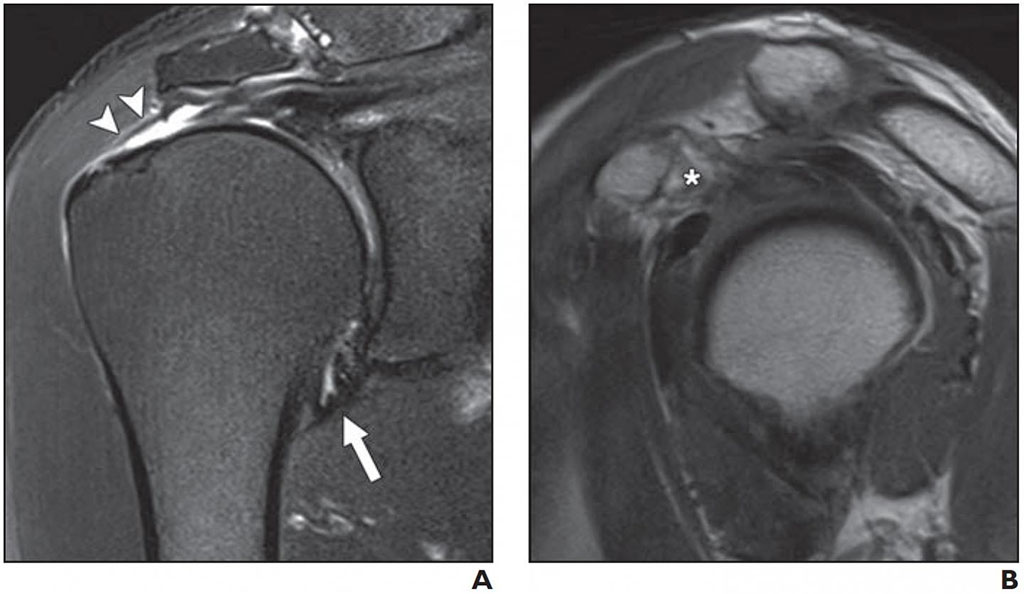MRI Predicts Shoulder Stiffness in Rotator Cuff Tears
By MedImaging International staff writers
Posted on 10 Mar 2020
Joint capsule edema and thickness at the axillary recess, as measured by magnetic resonance imaging (MRI), can prove useful in predicting stiff shoulder in patients with rotator cuff tears, according to a new study.Posted on 10 Mar 2020
Researchers at the Korean Veterans Health Service Medical Center (VHS; Seoul, Republic of Korea) and Chung-Ang University (Seoul, Republic of Korea) conducted a study involving 106 patients to evaluate the relationship between stiff shoulder in patients with a full-thickness rotator cuff tear and MRI findings, and especially joint capsule abnormality. The researchers then evaluated joint capsule edema and thickness in the axillary recess, obliteration of the subcoracoid fat triangle, fatty degeneration of the torn rotator cuff muscle, and degree of retraction.

Image: Normal joint capsule at axillary recess (A); Full-thickness tear of supraspinatus tendon (B) (Photo courtesy AJR)
The associations between MRI findings and preoperative passive range of motion (ROM) were then assessed, revealing a significant, negative linear correlation between limited ROM at forward elevation and thickness of the joint capsule in the glenoid portion of the axillary recess, external rotation and joint capsule edema in the humeral portion of the axillary recess, and internal rotation and joint capsule edema in the glenoid portion of the axillary recess. The study was published in the May 2020 issue of the American Journal of Roentgenology (AJR).
“This study is important because it is the first to highlight joint capsule abnormality on MRI as a factor associated with stiff shoulder in patients with full-thickness rotator cuff tears,” concluded lead author Yoon Yi Kim, MD, and colleagues. “Male sex and postero-superior rotator cuff tear were independent predictors of shoulder ROM on external rotation, and degree of fatty degeneration was an independent predictor of shoulder ROM on internal rotation.”
The rotator cuff is a group of muscles and their tendons that act to stabilize the glenohumeral joint and allow for the extensive range of motion in the shoulder, including abduction and internal and external rotation. Of the seven scapulohumeral muscles, four make up the rotator cuff –the supraspinatus muscle, the infraspinatus muscle, the teres minor muscle, and the subscapularis muscle. A rotator cuff tear is an injury of one or more of the tendons or muscles involved. Symptoms may include shoulder pain, pain, and limited motion.
Related Links:
Korean Veterans Health Service Medical Center
Chung-Ang University














